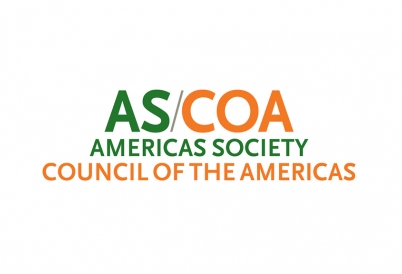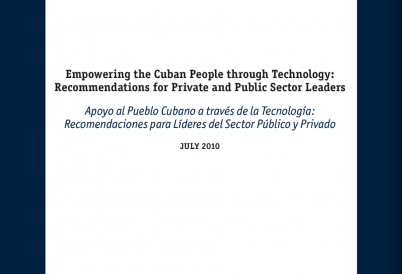It's time for the United States to ease restrictions and promote development of IT services in Cuba, writes Carlos Saladrigas of the Cuba Study Group in an op-ed for The Miami Herald.
After eight years in office, Colombian President Álvaro Uribe leaves his successor Juan Manuel Santos with strong ties to Washington.
A federal judge placed holds on some of the more controversial portions of Arizona’s new immigration law just a day before the legislation’s implementation. Access AS/COA’s resource guide to SB1070 and the temporary injunction.
In a submission of public comments to the U.S. International Trade Administration, Council of the Americas voices support for the Obama administration's National Export Initiative, outlining ways to boost hemispheric competitiveness and avoid protectionism to reach the goal of doubling U.S. exports by 2015.
Written in collaboration with the Brookings Institution and the Cuba Study Group, this white paper outlines ways that public and private sector can buiild access to technology and telecommunications services in Cuba.
The U.S. Department of Justice filed a lawsuit on July 6 to halt enforcement of SB1070, Arizona's controversial immigration legislation that critics say will lead to racial profiling. The law's implementation is slated for July 29.
U.S. Secretary of State Hillary Clinton visited Barbados to support the recent launch of the Caribbean Basin Security Initiative. The agreement, proposed last year by U.S. President Barack Obama, provides funds for anti-corruption and counternarcotics operations in 15 Caribbean countries.












